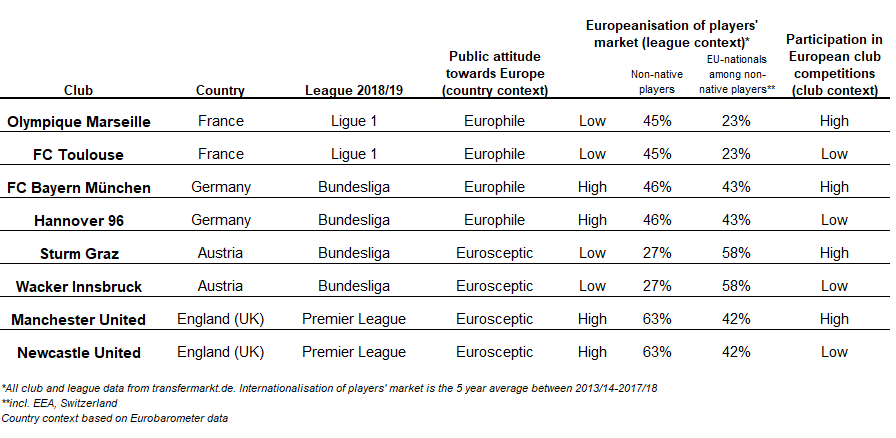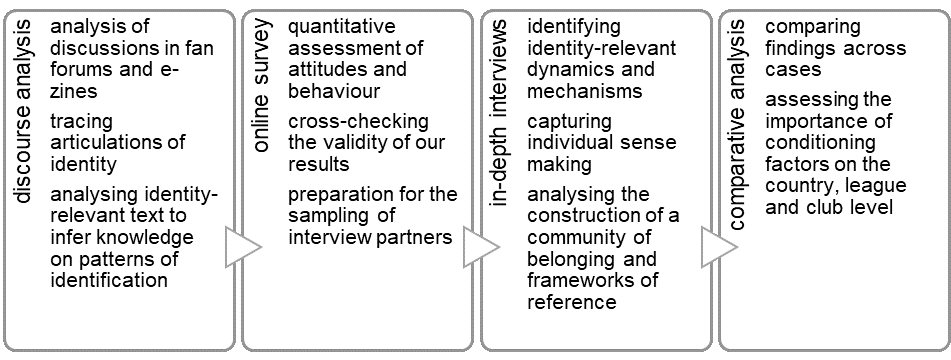Research Strategy
We approach our research object by using a multi-method approach. The combination of comparative analysis (three sets of four paired comparisons) and triangulation of data obtained through discourse analysis, survey research and in-depth interviews serves us to answer our main research question: To what extent are identities of football fans across Europe “Europeanised”? Our definition of “fandom” includes all those who articulate an interest in following a football team, be it occasionally or on a regular basis, passively watching or actively following a team (TV spectators, casual stadium visitors, organised supporters, self-styled ultràs etc.).
Any such Europeanised patterns of identification which were nurtured in a lifeworldly context of activities are of both scientific and political relevance. Identity-formation in everyday (supposedly non-political) transboundary contexts is still under-researched, in particular as regards politically salient implications. In addition, as football fans/spectators are numerous, and given that they are presumed to be informed by rather local and national traditions (i.e. constituting a ‘hard’ case), discovering a substantial degree of Europeanised identities among them could point to a (potential) source of cohesion at times of various European crises.
Case selection and methodology
The project is based on data from eight football clubs from four leagues/countries. We seek to find out what extent identities of football fans across Europe are ‘Europeanised’, and what factors influence the Europeanisation supporters’ identities. The analysis will be based on data from eight clubs in four countries. The cases were selected to differ in key conditioning factors, covering three nested contexts of football spectatorship: The country, the league and the club. On the country level, the attitude towards Europe and the European Union in the respective public is potentially influencing the identities of fans. The football leagues differ regarding the internationalisation of their teams measured as the players’ citizenships. The selected clubs differ as to how often they play in European club competitions. The table gives an overview of the cases.

The research strategy is a mixed-method approach, combining different methods to assess the same phenomenon through various angles. Three methodological tools will be used for our triangulation concerning (1) qualitative discourse analysis; (2) an online survey; (3) semi-structured/narrative interviews. Finally, structured paired comparisons will be carried out to dig deeper into the role of the influencing factors on our context levels (club, league and country). The picture illustrates the research strategy and the main aims of each step.

